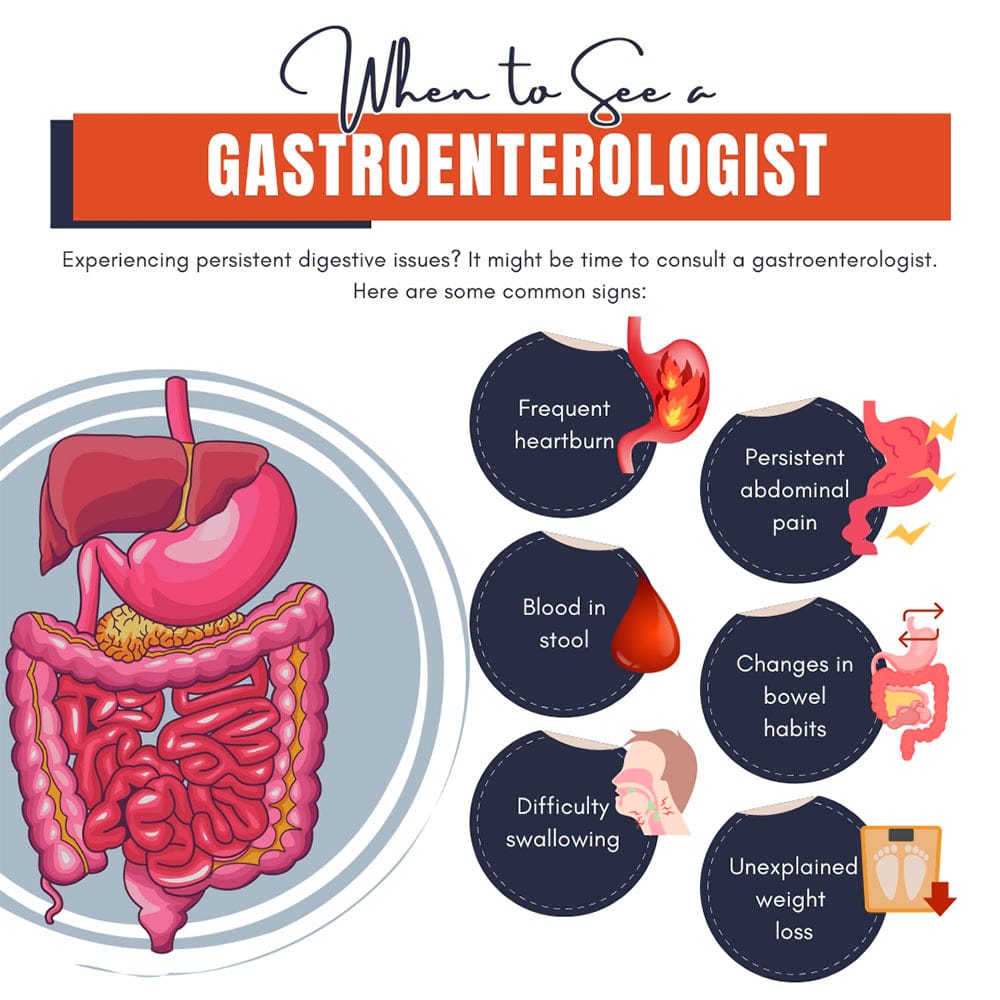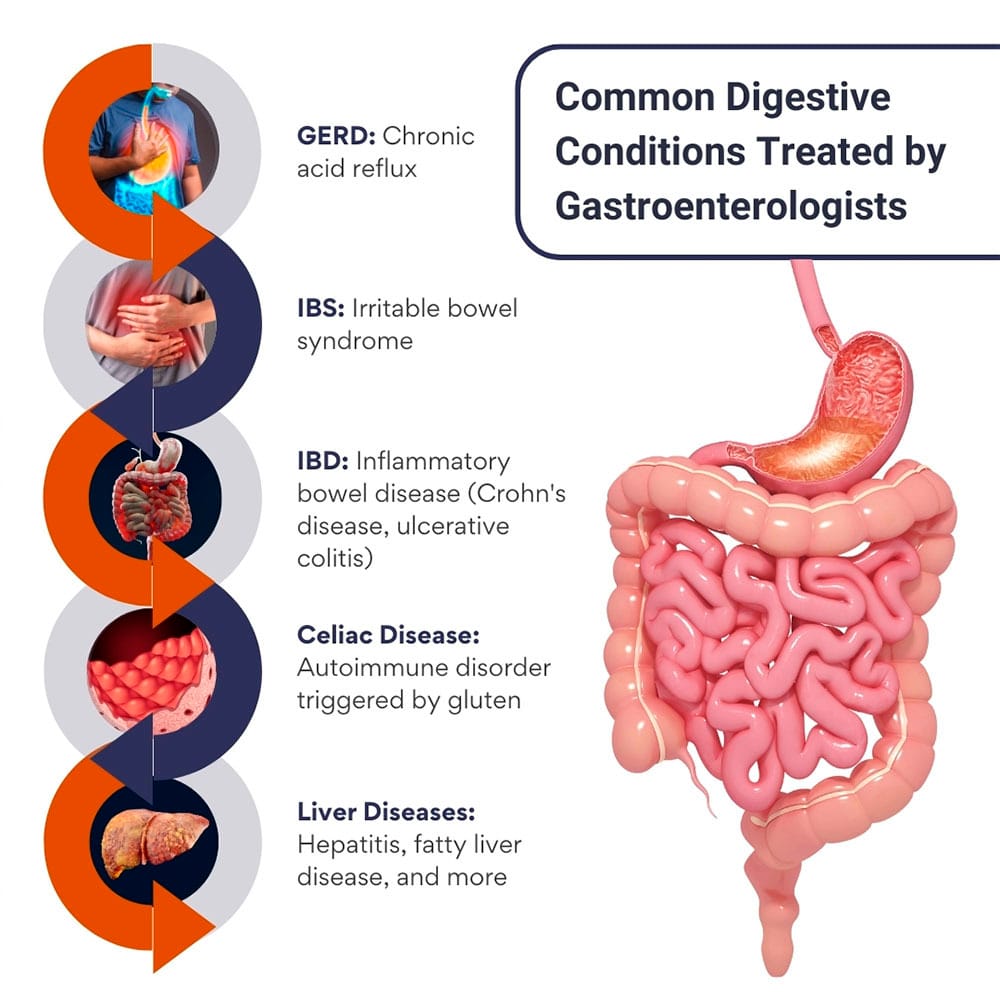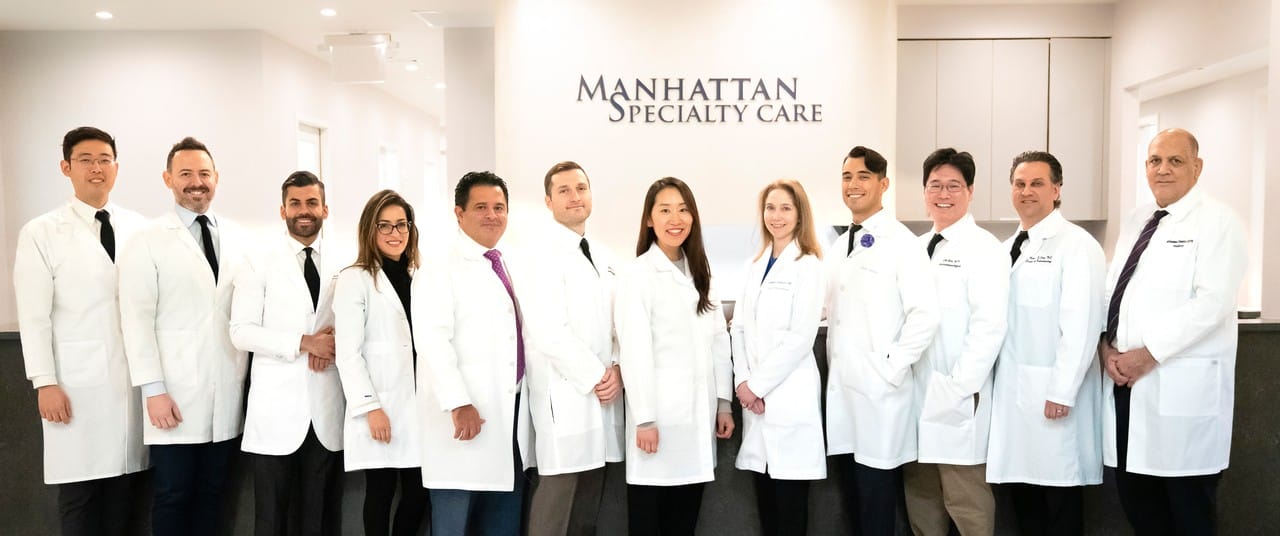Here’s How to Know If It’s Time
Alright, so you’ve been dealing with some stomach stuff lately. Maybe it’s nothing serious, but it’s been lingering, or maybe it’s something that keeps flaring up unexpectedly. And now you’re wondering, “Should I just wait it out, or is it time to see a specialist?” Here’s the lowdown on when it makes sense to call a New York City gastroenterologist, what to look out for, and how they can actually help.

What does a Gastroenterologist Do?
We’re talking stomach, intestines, liver, pancreas, and everything in between. So if something’s going on with your digestion that just doesn’t feel “normal” or if you’re dealing with some weird, lingering symptoms, they’re the ones who can really get to the bottom of it.
When Should You Think About Seeing One?
Let’s get real: everyone has some occasional stomach trouble. But if things start to seem off consistently or you’re getting pain and discomfort that’s hard to ignore, it might be time to consider seeing a gastroenterologist.
Here are a few signs:
- Heartburn. Do you have heartburn often? This could be a sign of GERD (gastroesophageal reflux disease), which is basically persistent acid reflux. Left unchecked, GERD can cause damage to your esophagus, so a gastroenterologist could really help you get it under control before it leads to bigger problems.
- Stomach Pain That Doesn’t Go Away. We all get stomach aches from time to time, right? But if you’re dealing with abdominal pain that keeps popping up or doesn’t have an obvious cause (like that extra taco), it’s worth having a pro take a look. Pain in the stomach area can be linked to so many things—IBS, ulcers, gallstones, you name it. A gastroenterologist can help you figure out what’s causing it so you’re not left guessing or putting up with constant discomfort.
- Blood in Your Stool. Okay, this one’s definitely not the most fun to talk about, but it’s important. This can happen for a bunch of reasons. From hemorrhoids to small tears from constipation or colon cancer,best to get it checked.
- Bowel Habits that Feel…Different. If you’ve gone from “normal” to constantly dealing with diarrhea, constipation, or a strange new pattern that’s throwing you off, it’s time to pay attention. Changes in bowel habits can be a sign of IBS, Crohn’s disease, or ulcerative colitis or colon cancer. These conditions can be pretty disruptive, but they’re also manageable once you know what’s going on. A gastroenterologist can help figure out what’s up and offer some relief.
- Trouble Swallowing. This might sound weird, but having a hard time swallowing food or feeling like it’s getting stuck isn’t something to ignore. Sometimes it’s linked to acid reflux, but there could also be inflammation or narrowing in the esophagus causing it. Whatever the reason, a gastroenterologist can help you get to the bottom of it and make eating less of a struggle.
- Weight Loss That Doesn’t Make Sense. If you’re dropping pounds without trying (and not in a good way), especially if you’ve got other digestive symptoms alongside, it’s time to get it checked. Unexplained weight loss can happen with malabsorption issues, or even something more serious.
What to Expect When Seeing a Gastroenterologist in New York City?
Here’s a general idea of what to expect during your appointment when you see a GI doctor for the first time.
The gastroenterologist will start by going over your background which covers symptoms you’ve had before and any diagnoses or treatments you’ve received, along with the medications you’re currently taking and your family’s medical history as well.
Make sure you’re ready to talk about your symptoms thoroughly – mention how often they occur, how long they last, and any things that seem to make them worse or better for you (like stomach pain or feeling bloated or having heartburn or noticing changes) in how you go to the bathroom or losing weight without knowing why.
The physician will conduct an examination, with a focus, on the abdomen region.They might apply pressure to areas to detect any tenderness or swelling that could suggest a digestive problem.
After reviewing your symptoms and medical background information provided by you far the gastroenterologist might decide to conduct some tests for evaluation.These tests could involve blood work examinations,radiological studies, like ultrasound or MRI scans and certain medical procedures such, as endoscopy or colonoscopy to thoroughly assess parts of the system.
Following the assessment and the initial test outcomes (if accessible) the physician might review conditions with you by clarifying what could be behind your symptoms and suggesting any tests or lifestyle modifications necessary.
When a diagnosis is definite; the gastroenterologist will devise a treatment strategy that could involve medications, dietary adjustments or lifestyle changes. In case additional tests are needed; the physician will clarify the procedures. Arrange for visits.
Suggestions for Your Scheduled Meeting- Get ready to jot down any issues or symptoms you want to discuss.
- Please provide a list of all the medications and any supplements that are pertinent.
- Please provide the input that you need to be paraphrased.
Common Conditions Gastroenterologists Treat
- Get ready to jot down any issues or symptoms you want to discuss.
- Please provide a list of all the medications and any supplements that are pertinent.
- Please provide the input that you need to be paraphrased.
Common Conditions Gastroenterologists Treat
Gastroenterologists handle a number of digestive health issues, here are a few:
- GERD: Chronic acid reflux, impacting the esophagus, if it’s not managed properly. Gastroenterologists can help keep symptoms under control and prevent complications.
- IBS (Irritable Bowel Syndrome): IBS causes symptoms like cramping, bloating, and altered bowel habits, and while it’s chronic, there are many ways to manage it.
- Inflammatory Bowel Disease (IBD): This includes Crohn’s disease and ulcerative colitis, both of which require long-term care to manage inflammation and prevent flare-ups.
- Celiac Disease: This autoimmune reaction to gluten can damage the small intestine.
- Liver Conditions: Anywhere from hepatitis to fatty liver disease.

When Preventive Care Makes Sense
Sometimes, it’s not just about treating symptoms — it’s about staying ahead of potential issues.
Gastroenterologists can provide preventive care, too, especially if you have a family history of digestive or liver issues.
- Colorectal Cancer Screening: Most people start screening around age 45, but if you have a family history, starting earlier can be smart. Colonoscopies help catch any early signs of cancer.
- Check-Ins for Chronic Conditions: If you’ve got something like GERD or IBS, regular check-ups help keep everything in check and can prevent flare-ups.
Tips for your first appointment
Going prepared can make all the difference in getting answers faster.
Here are a few tips to make sure you’re set for your appointment:
- Bring a Symptom Journal: Tracking your symptoms for a week or so can give the doctor a lot of useful information.
- Make a List of Medications: Include any vitamins, supplements, or over-the-counter meds you’re taking.
- Ask Questions: Don’t hesitate to ask about anything you’re unsure of. Your gastroenterologist is there to help you understand what’s going on.
Entrust Your Well Being to the Expert Care of Manhattan Gastroenterologists

Scheduling an appointment to see a gastroenterologist in New York doesn’t need to be daunting at all! By planning and knowing where to go you can avoid long wait times and receive the specialized care you need promptly and hassle free. At Manhattan Gastroenterologists our dedicated team is devoted to providing support tailored to your needs.
Don’t wait to prioritize your health by scheduling a visit with the GI specialists in New York City at Manhattan Gastroenterologists clinic to promptly receive the care and solutions you need.
